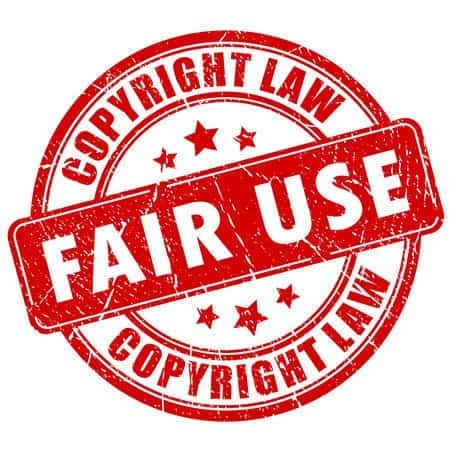 One of the broadest exceptions to the exclusive rights of copyright owners is the fair use doctrine.[1] The fair use doctrine in India is based on “fairness”. The relevant question to be asked is “whether it would be fair to copy the works of an author of copyright without his or her permission?”
One of the broadest exceptions to the exclusive rights of copyright owners is the fair use doctrine.[1] The fair use doctrine in India is based on “fairness”. The relevant question to be asked is “whether it would be fair to copy the works of an author of copyright without his or her permission?”
The copyright law perceives certain uses of copyrighted works that are viewed as “reasonable” and not against the privileges of the authors. The doctrine of fair use is explained in section 52 of the Indian Copyright Act, with new provisions added after there cent amendment in 2012.[2] The new provision allows fair dealing with any work that is not a computer program under section 52(1)(a) for three purposes:
1. Private or personal use including research;
2. Criticism or review; and
3. Reporting current events
“Fair dealing” is a necessary doctrine, not only in the copyright laws but also in strengthening the protection given to citizens under Article 19 of the Constitution of India.[3] With the emergence of new technologies, the Indian Copyright Act, 1957 has incorporated section 65A which is titled “protection against circumvention of technological measures”. Under this provision, tampering with Digital Rights Management (DRM), that is, measures taken to enforce copyrights.
[1]s52, Indian Copyright Act 1957. [2]Ibid. [3]s52(1)(a), Indian Copyright Act,2012. [4]Ayush Sharma, “Indian Perspective of Fair Dealing under Copyright Law” (2009) 14 Journal of Intellectual Property Rights 523.
digitally, is a punishable offence. Digital Rights Management (DRM) also restricts the scope of fair use possibilities for libraries and academic community.
In the cases relating to online infringement it is difficult to determine the liability of an infringer. The Indian Copyright Act divides infringement into primary and secondary infringement.
The concept of primary Infringement can be found in section 51(a)(i) of Indian Copyright Act.[1] Primary infringement is the most fundamental or direct kind of copyright infringement. A man copies, reproduces, or circulates a copyrighted work without the proprietor’s consent. This act of reproduction without permission is the (primary) infringing act.
Sections 51(a)(ii) and 51(b) deal with secondary infringement. Section 51(a)(ii) makes the intermediary and all illegal profit-making websites liable for copyright infringement. The alleged infringer can be exempted if he proves “he was not aware and had no reasonable ground for believing that such communication to the public would be an infringement of copyrights”[1]
[5]s51(A)(i), Indian Copyright Act,2012. [6]s51(A)(i) and s51(b), Indian Copyright Act,2012.






